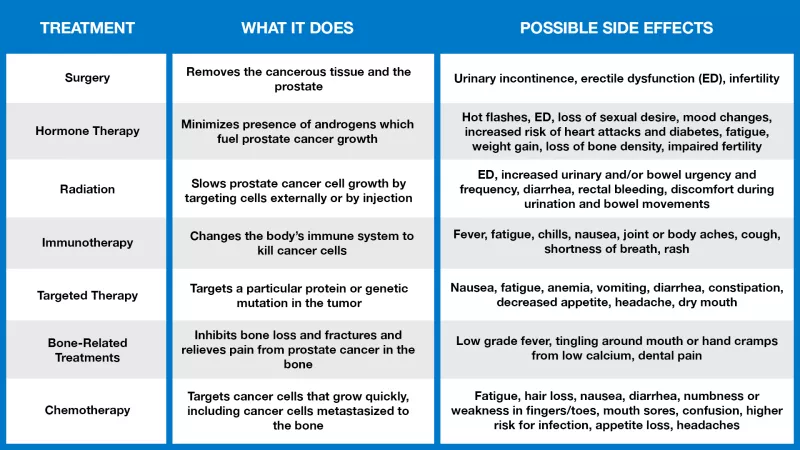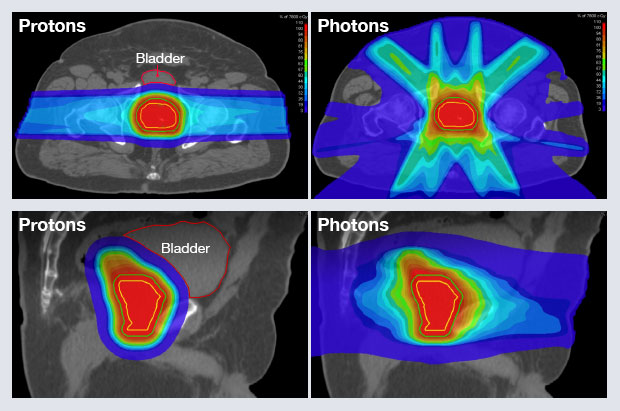Indicators on Best Prostate Cancer Doctor In Mumbai You Should Know
Wiki Article
Effective Prostate Cancer Therapy Options for Guy
Prostate cancer is a prevalent issue among males, with therapy alternatives differing depending upon the phase and aggression of the disease. While surgical procedure continues to be a key treatment strategy, there are additionally different techniques such as radiation therapy, hormone treatment, and immunotherapy that have shown promising outcomes. Furthermore, techniques like careful waiting and active monitoring are gaining recognition for their duty in taking care of prostate cancer cells. Understanding the nuances of these treatment alternatives and their effectiveness is important for making educated choices concerning one's health and well-being.Surgical Procedure as Therapy Choice
Surgical treatment stands as a primary therapy option for prostate cancer people in situations where the disease is localized and surgical treatment is deemed suitable by the medical care team. Prostate cancer cells surgical treatment aims to eliminate the malignant tissue from the prostate gland, either partially (prostatectomy) or completely (radical prostatectomy) The choice to select surgery is normally based on different variables, including the phase of cancer cells, the client's total wellness, and potential side results.One common surgical strategy is robotic-assisted laparoscopic prostatectomy, which provides accuracy and marginal invasiveness contrasted to typical open surgery. This method uses robot arms controlled by the cosmetic surgeon to get rid of the prostate gland with improved mastery and visualization.
While surgery can be efficient in getting rid of local prostate cancer, it may entail risks such as urinary system incontinence and impotence. Individuals considering surgical procedure must take part in thorough discussions with their doctor to weigh the advantages and prospective drawbacks of this therapy option.
Radiation Therapy for Prostate Cancer
Having actually checked out the function of surgical treatment in dealing with localized prostate cancer, the focus currently changes to going over radiation therapy as an additional vital therapy method for this disease. Radiation treatment makes use of high-energy rays to ruin and target cancer cells in the prostate gland. There are two main kinds of radiation treatment generally used for prostate cancer: exterior beam of light radiation and brachytherapy.
Outside beam of light radiation involves routing radiation from a device outside the body in the direction of the prostate. On the other hand, brachytherapy entails putting contaminated seeds directly right into the prostate, providing radiation from within.
Radiation treatment can be a standalone treatment for localized prostate cancer cells or made use of in combination with various other therapies, such as surgery or hormone therapy, depending on the stage and aggression of the cancer. Best prostate cancer hospital in Mumbai. Usual side impacts of radiation treatment may include tiredness, urinary problems, and digestive tract problems, which are generally momentary and can be managed efficiently
Hormone Treatment in Prostate Cancer
Hormone therapy is a vital treatment approach in managing prostate cancer cells, specifically in instances where the cancer cells has spread beyond the prostate gland. Prostate cancer cells often rely upon male hormonal agents, such as testosterone, to expand. Hormone therapy, likewise referred to as androgen deprivation therapy, intends to either reduce the production of these hormones in the body or block their effects on the cancer cells.There are different kinds of hormonal agent therapy readily available for prostate cancer cells treatment. One typical approach is making use of medications called LHRH villains and agonists, which function by decreasing testosterone degrees. One more choice is anti-androgens, which obstruct the action of androgens on the cancer cells. Some guys may benefit from a mix of these treatments to efficiently handle the cancer.
Hormone treatment can aid reduce the development of prostate cancer cells, reduce symptoms, and improve high quality of life. Nevertheless, it is not a curative therapy and may come with side effects such as warm flashes, exhaustion, and loss of sex drive. Routine monitoring and conversations with doctor are important to handle the effects of hormone therapy effectively
Immunotherapy for Prostate Cancer Cells
Immunotherapy has arised as an encouraging treatment method for prostate cancer cells, providing brand-new avenues for combating the disease. Unlike typical treatments like surgery or radiation, which straight target cancer cells, immunotherapy works by harnessing the body's body immune system to assault and identify cancer cells.One type of immunotherapy being checked out for prostate cancer is checkpoint preventions. These drugs target healthy proteins that protect against the body immune system from attacking and acknowledging cancer cells. By obstructing these proteins, checkpoint preventions can boost the immune reaction versus prostate cancer cells.
One more technique entails healing vaccines, which promote the body immune system to target specific antigens located on prostate cancer cells. These vaccines can assist the body immune system destroy and identify cancer cells better.


Watchful Waiting and Active Monitoring
In the realm of prostate cancer cells administration, particularly for cases where hostile treatment may not be right away needed, the method of watchful waiting and energetic security plays a substantial function. Watchful waiting entails monitoring the cancer without prompt treatment, interfering just if the cancer cells shows indicators of progression. This approach is frequently considered for older people with slow-growing growths or those with multiple wellness problems where the threats of treatment might exceed the benefits.Active security, on the other hand, includes routine surveillance with PSA examinations, digital rectal examinations, and routine biopsies. It is typically advised for people with low-risk prostate cancer cells to closely track any type of changes in the cancer cells's behavior. Treatment options can be reassessed. if there are indications of the cancer ending up being extra aggressive.
Both watchful waiting and active surveillance goal to stay clear of unnecessary treatments and their possible adverse effects, such as urinary incontinence and impotence, while ensuring timely intervention if the cancer cells proceeds. These approaches provide a balance in between taking care of the cancer cells successfully and maintaining the patient's lifestyle.
Final Thought

Prostate cancer cells surgical treatment intends to eliminate the cancerous cells from the prostate gland, either partly (prostatectomy) or completely (extreme prostatectomy)Having actually checked out the duty of surgery in dealing with localized prostate cancer, the focus currently moves to reviewing radiation therapy as an additional crucial therapy modality for this Best prostate cancer hospital in Mumbai disease.Hormone treatment is an important therapy method in taking care of prostate cancer cells, especially in instances where the cancer has actually spread out beyond the prostate gland. Watchful waiting involves monitoring the cancer without prompt treatment, stepping in just if the cancer shows indications of development. It is usually suggested for individuals with low-risk prostate cancer cells to carefully track any type of adjustments in the cancer cells's behavior.
Report this wiki page